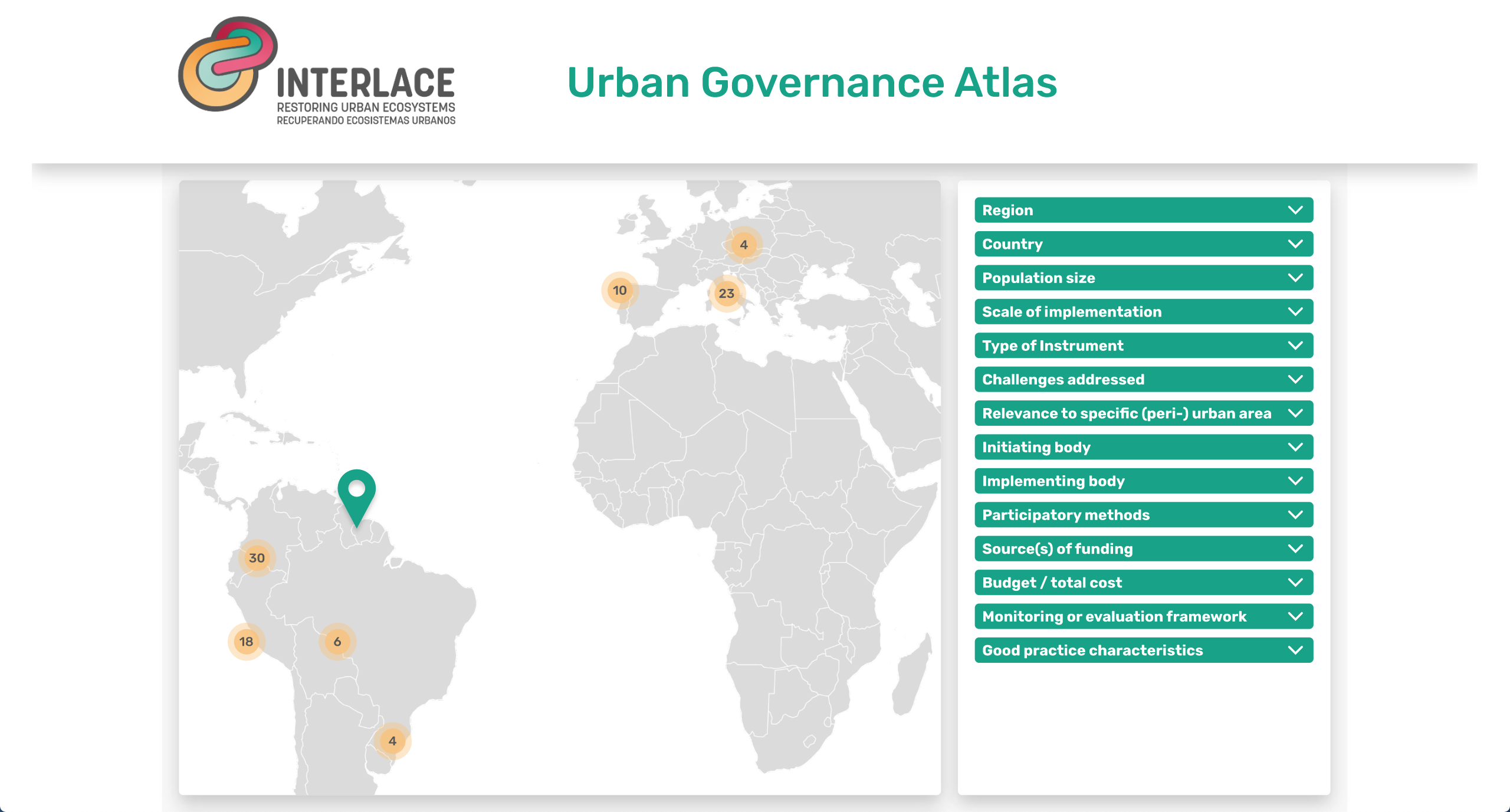-
Planning30 Sep
-
Developing9 Feb

Task 2.3 Categorizing and co-producing local governance solutions
(Lead: ECO, contributing partners: EV-INBO, TEC, UNA, YES, TSF, UAB, HI, POR, CHE, ENV, KRA, CBIMA, GRA, WWF, OPPLA; M1-M46)
This task aims to foster ecologically coherent urban planning and decision-making for urban ecosystem restoration and rehabilitation and green space planning through improved governance. This will be accomplished in the INTERLACE and wider cities by: (1) creating an interactive online database of good governance practices for restorative NBS; (2) co-producing and testing city-specific governance instruments in INTERLACE cities.
In a first step, ECO will oversee the creation of an Urban NBS Governance Atlas, with a focus on restorative NBS. The Atlas will be an interactive online database of circa 250 good practices on policy and governance instruments for urban ecosystem restoration and green space planning, including dedicated strategies/plans, planning instruments (targets, standards, scoring, green space factors), financial instruments, and supporting instruments (e.g. communication/awareness raising, participative governance approaches). Input will primarily stem from an online city survey (distributed to members of partner city networks and 6 INTERLACE city partners), literature review, web search, and consultation of the Advisory Board and relevant research projects (e.g. GreenSurge, NATURVATION, ProGIReg), and EV-INBO, in coordination with WP3 (T3.1). Data collection will be jointly carried out by all partners involved in this task. ECO will create the open-data version of the online database and user interface, with interactive search features. The database will be embedded in the Innovation Hub (WP5, supported by OPPLA) in a format similar to NATURVATION’s Urban Nature Atlas, which has also been developed by ECO.
In a second step, city-specific governance instruments will be co-produced and tested in INTERLACE cities. To this purpose INTERLACE city partners will select three types of instruments identified in the Urban NBS Governance Atlas to pursue in their local context. The aim is select types that could (1) add value to current urban ecosystem restoration and rehabilitation activities and green space governance and (2) respond to local opportunities and needs identified in D2.1. These instruments, which have already successfully applied elsewhere, will be newly co-produced for the local INTERLACE city partner context. Examples could include revisions of sectoral policies, the establishment of new funding schemes, or the organization of collaborative governance instruments. These can reach a ‘ready to implement’ stage or actually be implemented during the project, depending on the local context of each city. The city focal points will lead the process together with the local knowledge brokers, under the close guidance from ECO and UNA and with support from TEC, YES and TSF. Following the agile process and taking into account local processes and dynamics, co-production will be tailored to the needs of each INTERLACE city partner. Insights on the design and co-production of these instruments will be centrally collected by ECO (EU cities) and UNA (CELAC cities) and collated in D2.4 to foster effective restorative NBS governance in cities beyond INTERLACE.
